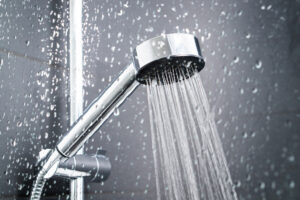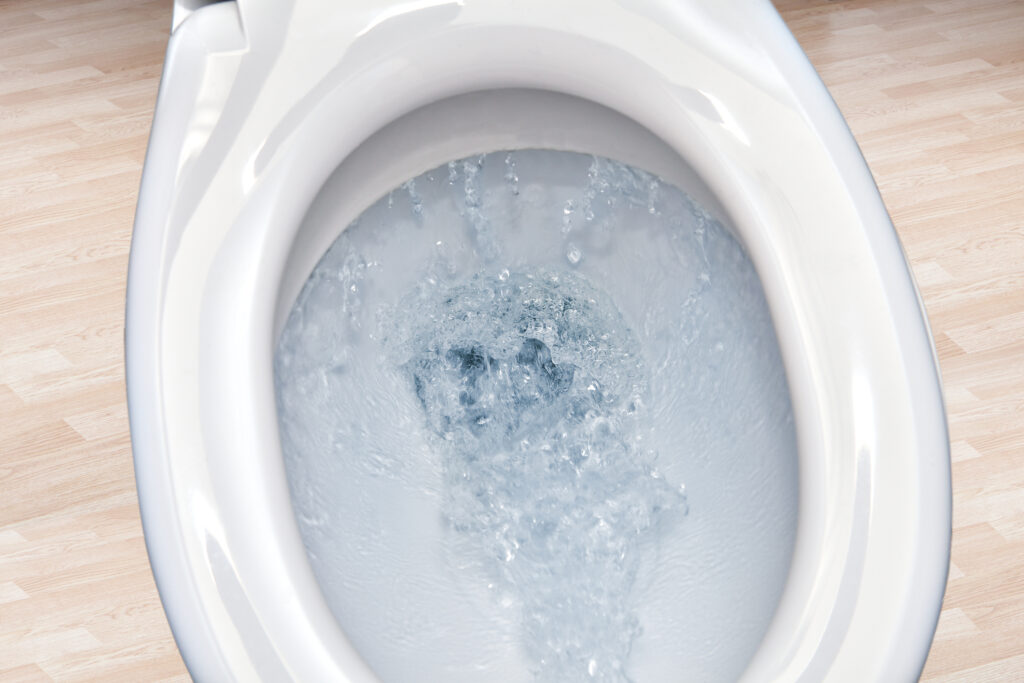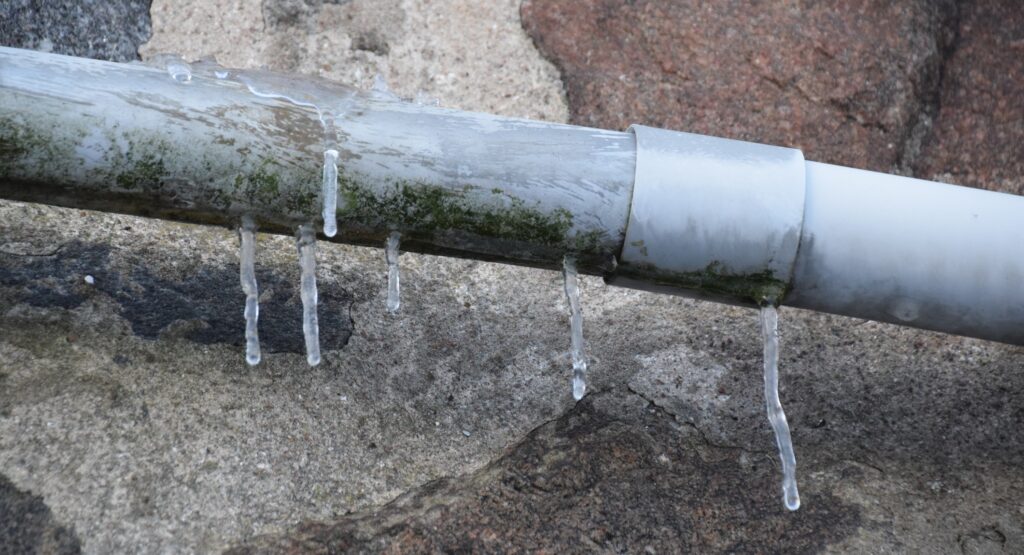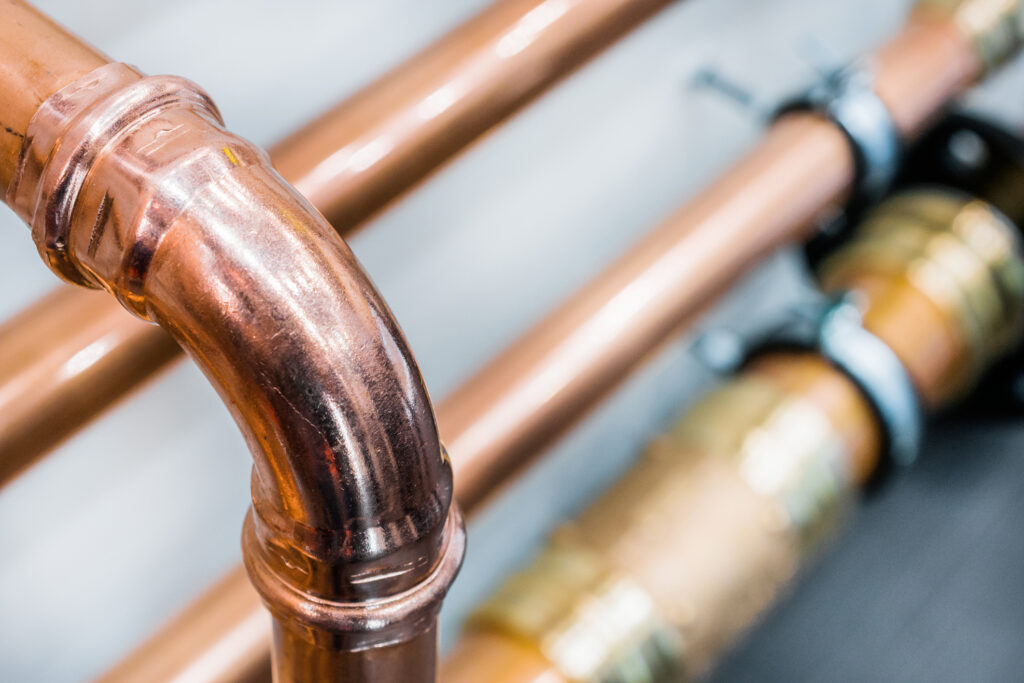Water pressure problems are a common cause of frustration for homeowners. The last thing you want is to step into the shower only to feel a weak trickle. Whether too high or too low, water pressure problems require quick action because they could indicate a serious issue with the plumbing. The longer you put off repairs, the worse the damage can become.

What Is Normal Water Pressure?
In Chicago, a water pressure level of 40 to 60 PSI is the norm. This range is strong enough to run multiple fixtures without straining the plumbing. Anything lower than 40 PSI is considered a low water pressure problem. Levels above 60 PSI signal high water pressure.
For higher water flow without stressing pipes and fixtures, set the pressure between 50 and 55 PSI. For older plumbing that can’t handle higher pressure, keep the pressure around 45 PSI.
Problems With Low Water Pressure
Low water pressure creates everyday hassles with bathing, cooking and cleaning. It’s a red flag that something isn’t working properly with the plumbing.
Clogged Pipes
Chicago is well-known for its hard water. The sediment and mineral buildup can create huge drawbacks for homeowners. As more scale accumulates, it narrows the width of pipes, which reduces the flow rate. If you don’t take prompt action, the buildup can reach the point where it causes full blockages.
Hard water isn’t the only possible source of clogged pipes. Grease, tree root intrusion and pipe corrosion are other potential causes that a plumber can look for.
Signs of clogged pipes:
- Slow draining sinks
- Gurgling toilet noises
- Water backing up
- Frequent drain clogs
- Unpleasant pipe odors
Hidden Leaks
Small leaks behind walls and under floors will affect your home’s water pressure. As water leaks out, it reduces flow, leading to low pressure that worsens over time. Beyond inconvenient, this problem will drive up your water bill by wasting water.
Clues you may have hidden leaks:
- Unexplained higher water bills
- Musty odors
- Stains on ceilings
- Peeling or bubbling paint
- Constant sound of water
Failing Fixtures
For some homes, the low water pressure has nothing to do with the pipes. When your faucets, showerheads or valves become outdated or broken, they restrict water flow. This is a common problem for homes with older fixtures.
Red flags for fixture issues:
- Uneven water flow
- Rust or mineral buildup
- Leaking around handles
- Dripping faucets overnight
- Showerhead spray irregularities
Problems With High Water Pressure
You might enjoy having high water pressure at first. But over time, the force of excess water flow can be detrimental to pipes and fixtures.
Pipe Damage
Pipes and fixtures are meant to withstand normal water pressure levels. When the pressure is too strong, it can easily damage the pipes, joints and seals. Once damaged, the pipes are much more likely to burst. This can result in major flooding that is costly to repair.
How to spot pipe damage:
- Frequent pipe leaks
- Visible corrosion spots
- Water stains on walls
- Low pressure in areas
- Unusual banging noises
Appliance Wear
High water pressure might be nice when you’re showering, but it can cause significant damage to appliances. For washing machines, this could result in hose leaks or valve failures. Dishwashers need steady pressure to avoid internal leaks and damaged seals. Water heaters are particularly prone to tank stress when they have high water pressure. All of the strain can lead to premature breakdowns and having to replace the appliances more than normal.
What appliance wear looks like:
- Shortened appliance lifespan
- Frequent breakdowns or repairs
- Leaking around connections
- Unusual operating noises
- Inefficient performance levels
Wasted Water
Strong water pressure pushes more water than necessary through faucets, showerheads and hoses. This means whether you’re showering or watering your yard, you’ll waste far more water than needed. Your water bills will increase, and you may face costly plumbing repairs. Keeping the pressure at a safe level is crucial for saving money and conserving water.
How to spot wasted water:
- Constantly running toilets
- Faucets that won’t shut off
- Dripping showerheads daily
- Sudden spikes in water bills
- Puddles forming near fixtures
Faulty Pressure Regulators and Main Line Issues
Faulty pressure regulators and main line issues can both cause water pressure problems. The pressure regulator keeps incoming water at a safe, consistent pressure. When the valve breaks or the spring becomes loose, it prevents proper regulation. A plumber can check the regulator during annual inspections to make sure it’s working correctly.
For main line breaks or clogs, a plumber can fix the issue by repairing damaged sections or replacing the line. Frequent causes of mainline issues are tree root intrusion, pipe corrosion and mineral buildup. Your plumber will consider all of these when choosing the best repair method.
At Goode Plumbing, we handle all plumbing services for residents and businesses. Book a plumbing inspection or pressure test in Chicago, IL by contacting Goode Plumbing.





